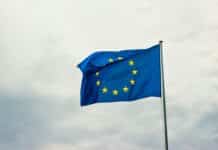What changes can we find in the 2020 annual work programme of “Erasmus+”: the Union Programme for Education, Training, Youth and Sport?
- The pilot activity on European Universities will be reinforced. The selected projects will increase the performance, attractiveness, and competitiveness of higher education institutions on a European scale.
- Inclusion of a new action on Centres of Vocational Excellence aimed at establishing world-class reference points for both initial as well as continuing training in specific sectors.
- Further efforts will be made to optimize, stabilize and improve the performance and user-friendliness of the IT tools supporting the implementation of the Programme.
We can also find other novelties concerning:
- Grants awarded by exception to Calls for Proposals in KA2 and KA3,
- Grants awarded by means of Specific Calls for Proposals in KA3,
- Specific grants awarded under a Framework Partnership in KA3.
The differences between the annuals 2019 and 2020 concerning KA2 and KA3 are presented below:
| What DID NOT CHANGE in the annual work programme from 2019 to 2020? | What can you find NO MORE in the annual work programme 2020 compared with 2019? | What is NEW in the annual work programme 2020? | |
| Grants awarded by exception to Calls for Proposals (KA2) | Strategic Partnerships in the field of education, training and youth –Transnational Cooperation Activities | eTwinning National Support Services and the Partner Support Agencies | |
| Resource Center for TCA (Transnational Cooperation Activities) governance | |||
| Grants awarded by means of Specific Calls for Proposals (KA3) | European Youth Together | Forward-Looking Cooperation Projects | European Policy Experimentation |
| Social inclusion and common values: the contribution in the field of education and training | Performance of higher education institutions –U-Multirank | Centers of Vocational Excellence | |
| Civil Society Cooperation in the field of Youth | Networks and partnerships of Vocational Education and Training (VET) providers | ||
| Specific grants awarded under a Framework Partnership (KA3) | Civil Society Cooperation in the fields of Education and Training and of Youth -Framework Partnership Agreements | European policy network in the field of key competences | |
| European policy network on teachers and school leaders | |||
| European policy network in the field of education of children and young people with a migrant background | |||
| Grants awarded by exception to Calls for Proposals (KA3) | Support to better knowledge in youth policy | National Coordinators for the implementation of the European Agenda for Adult Learning | National Academic Recognition Centers (NARIC) |
| Presidency events in the fields of education, training and youth: conferences, meetings of ministers and directors general (partially co delegated to DG EMPL) | Initiative to support the implementation of European Higher Education Area (EHEA) reforms | Bologna Secretariat | |
| National units for the Eurydice network | The International Association for the Evaluation of Educational Achievement (IEA) -International Civic and Citizenship Education survey (ICCS) | Teaching and Learning International Study (TALIS) | |
| ECVET (European credit system for vocational education and training) National Teams | Structured Dialogue: support to National Working Groups | PIAAC | |
| Eurodesk network | |||
| Eurodesk Brussels-link | |||
| SALTO Youth Resource Centres | |||
| Cooperation with international organisations (partially co delegated to DG EMPL) | |||
| European Youth Forum |
To find more information about the work annuals check here: annual work programme 2020 and annual work programme 2019.




